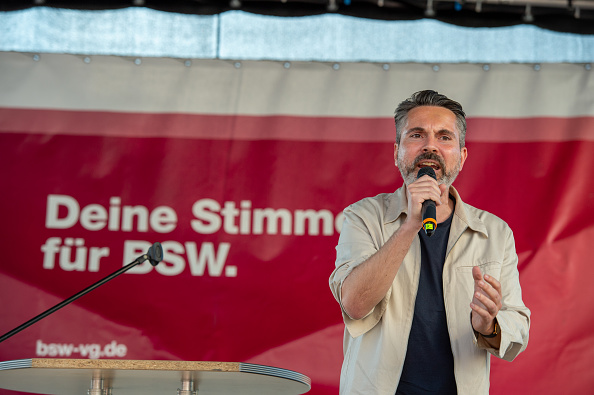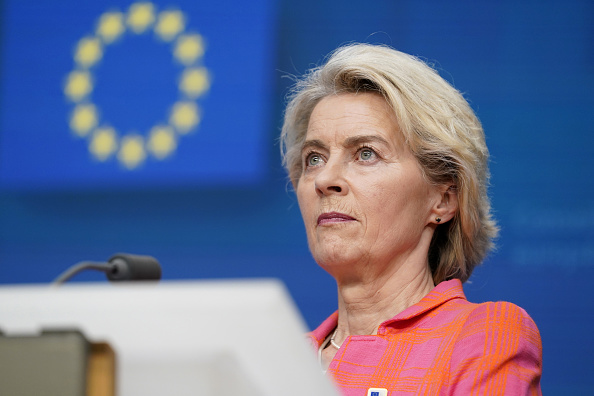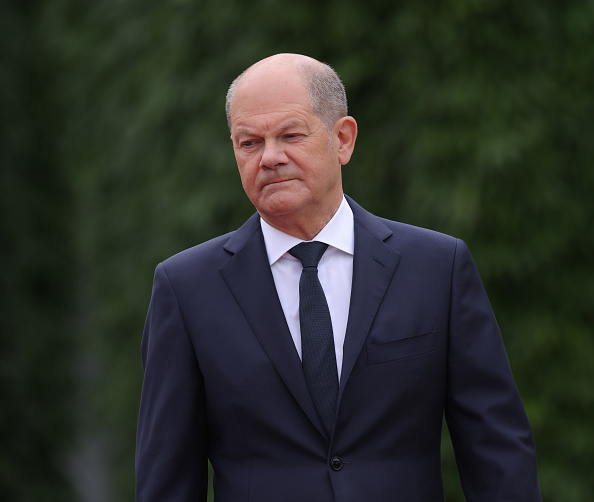Germany and the Baltic countries are discussing possible ways to take the presidency of the Council of the European Union away from Hungary, following a “peace” mission to Russia by the country’s Prime Minister, Viktor Orbán.
A move to curtail Hungary’s presidency would require 20 of the European Union’s 27 countries to agree, representing 65 per cent of the bloc’s population. It is not clear therefore that an attempt would succeed, as only 16 ambassadors of EU Member States joined in giving Hungary’s representative a “clear warning” at a July 10 meeting.
Poland has also emerged as a leader of those calling for the Council of the EU to shorten Hungary’s six-month term. Polish PM Donald Tusk has sharply criticised the Hungarian Government for continuing to hold talks with Russian officials.
A second bloc, which includes France, Italy, and Belgium, favours a more “political approach”, said Daniel Hegedüs, a senior fellow at the German Marshall Fund.
Hungary offered a debrief of Orbán’s self-described peace mission to EU ambassadors at July 10’s meeting of the bloc’s committee of permanent representatives, or COREPER II.
Orbán’s “parallel diplomacy” was “a humiliation for the EU, because it confuses roles”, an EU diplomat told Italy’s Corriere della Sera news outlet.

Under EU treaties, foreign policy is officially a competence of the High Representative, the President of the European Commission and the President of the European Council.
Poland has so far managed to coax members of its bloc to ask the EU’s legal service to give an opinion on what powers the Council presidency can use to act for the EU in foreign affairs.
That could involve asking the EC to take Hungary to court, although such would rely on the European Court of Justice being willing to wade into the matter.
For opponents wanting to shorten a country’s tenure in the Council of the EU’s rotating presidency, there were “three possible avenues”, said the Meijers Committee, a group of legal professionals based in The Netherlands.
If two-thirds of the members were willing to vote to affirm “the existence of a clear risk of a serious breach to EU values”, there is an Article 7 procedure that would let them end Hungary’s presidency at once, and suspend its voting rights.
A simple majority of European Council members could also vote to change the dateline of the rotating presidency and bring forward Poland’s presidency in place of Hungary to August or September. To enable this, the President of the European Council Charles Michel would need to file a motion on the basis of Article 236 of the Treaty on the Functioning of the European Union.
Most EU Member States, though, appear extremely wary of setting a precedent that they fear would weaken the principle of the rotating presidency — one that also gives all of the smaller countries a chance to direct the EU’s agenda.
A third and seemingly more realistic option could simply consist of boycotting “all or some” meetings chaired by Hungary, or by just sending more junior officials, according to Alberto Alemanno, professor of EU law at the College of Europe and founder of Belgian NGO The Good Lobby.
Hungary, for its part, argued the EU needed “some kind of relationship” with Moscow for a “sustainable security architecture”, said Europe minister János Bóka.

The European Parliament’s Conference of the Presidents, consisting of the heads of its political groups, said on June 9 there was no time available in the schedule for Orbán to address the EP on June 16 or 17, as he had wished.
Bóka noted though there was a “full house” for Hungary’s June 10 afternoon press conference setting out the programme for its presidency.





